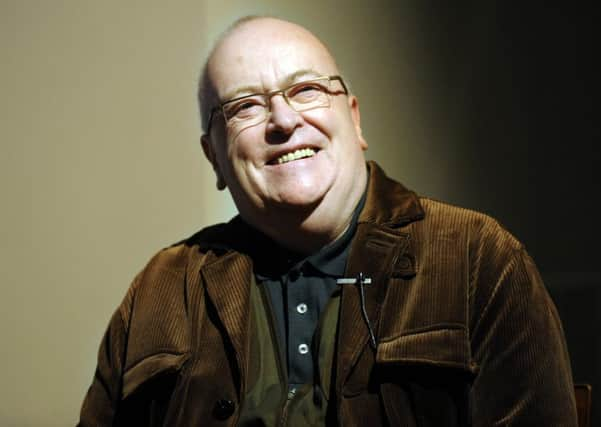Obituary: Bob Tait, writer and intellectual


Robert (Bob) Tait, who died suddenly on 21 December at home in Aberdeen, was a rare creature on the Scottish cultural and political landscape: a public intellectual and man of action who truly wanted to make Scotland a better place and worked on that to the very end of his life.
Born and brought up in Kilmarnock, educated at Glasgow University, where he took a first in philosophy, Bob began making his name as a poet while studying the Austrian-born philosopher Ludwig Wittgenstein for a (never-completed) PhD at Edinburgh University.
Advertisement
Hide AdAdvertisement
Hide AdBut he really burst onto the scene when he founded Scottish International in 1968 at the height of the student “revolution” and anti-war movement.
The magazine that he edited from the offices of the Catholic Chaplaincy on Edinburgh’s George Square gave equal prominence to the arts and politics/history and attracted a distinguished board drawn from all sides of Scottish public life.
In March 1973, at the peak of the magazine’s influence, Bob inspired and organised a high-level conference, What Kind of Scotland?, at Edinburgh University’s theatre. A highlight was the first public performance of John McGrath’s The Cheviot, The Stag and the Black Black Oil, a radical form of political theatre as ceilidh which the 7:84 Company then toured around the Highlands and Islands.
This very productive and heady period saw Bob combine two of his political passions – nationalism and internationalism – in one. He took delight to his dying day in an extraordinary barb levelled at him (with Edwin Morgan) and his globalist nationalism by Hugh MacDiarmid: “rootless cosmopolitan” (a phrase used by the Nazis to describe Jews).
Bob commented years later. “This was in a pamphlet – a fatwah, in effect – written by Hugh MacDiarmid. Luckily it did neither of us any real harm, we chuckled merrily about it at the time, and reflected that this was rich coming from a proponent of the communist international (whose adherents were, of course, excoriated as rootless cosmopolitans by fascists and others of the far right).
“The reason for MacDiarmid’s diatribe? Eddie and I took many of our literary-cultural cues from sources furth of the domain of echt Scottish literature: as did MacD, of course, but he disapproved of our sources. I happily treated the accusation as a badge of honour. Still do.”
As the Scottish National Party made its Westminster breakthrough at the two general elections of 1974, Bob was asked by Gordon Brown, then rector of Edinburgh University and chairman of its Student Publications Board, to contribute his unique voice to the Red Paper on Scotland (1975) – essentially a Labour critique of Scottish nationalism and plaidoyer for deep devolution from a left perspective.
Bob made the case for the Scottish Left to join forces with the social democrat wing of the SNP – and became an early and leading member of the “breakaway” Scottish Labour Party founded by Jim Sillars in 1976.
Advertisement
Hide AdAdvertisement
Hide AdBy then Bob had moved to Aberdeen to live with Isobel Murray, senior lecturer and later Professor of Modern Scottish Literature at Aberdeen University, whom he married in 1976.
He started as a lecturer in sociology and education at Aberdeen College of Education in 1974, but maintained his love of philosophy – one that remained intact as he was working on theories of meaning up to his death.
Isobel and Bob formed a pair of literary lions, hosting memorable parties and discussions at their flat for guests such as novelists Archie Hind and William McIlvanney, who became the university’s first writer in residence at their suggestion.
They later co-authored Ten Modern Scottish Novels (1984) and did a series of in-depth interviews that led to four volumes of Scottish Writers Talking. The interviewees read like a galaxy of Scottish literary talent: Jessie Kesson (subject of a separate biography by Isobel), George Mackay Brown, Ali Smith, Norman MacCaig and Naomi Mitchison.
Bob, while teaching and broadcasting for Radio Aberdeen and Radio Scotland, developed a keen interest in the fishing industry and the sorry state of Scottish housing. In 1977 he co-founded and later chaired Langstane Housing Association to provide single adults with affordable rented accommodation.
In retirement, Bob combined caring duties for Isobel with pursuing his philosophical interests and campaigning both for Scottish independence and for the European Union as a social democrat profoundly influenced by German philosopher and European federalist Jurgen Habermas.
When he had time, he contributed such passions and insights to the pages of non-tribal online magazine sceptical.scot, where he served on the editorial board.
For Bob this felt like a return to his roots as a young radical Scottish thinker and writer eager to explore society and culture at home and abroad. He gave generously of his time and energy as always, offering younger contributors enthusiastic, if critical, advice. A generous, stimulating friend, he retained a big heart and mind – the likes of which we sorely miss in these diminished times.
He is survived by his second wife, Isobel Murray, and first wife Irene Evans, with whom he had two children, Annalisa and Mark.
DAVID GOW